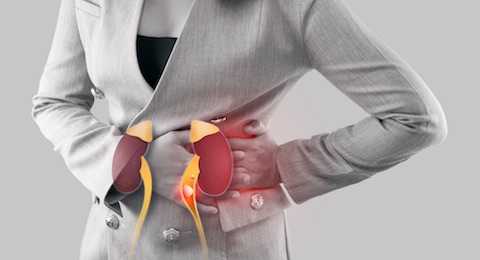
Kidney stones comprise a mixture of minerals and salts. These stones can expand in one kidney or both of your kidneys. They grow when levels of some precise substances in your urine get too lofty.
Kidney stones comprise a mixture of minerals and salts. These stones can expand in one kidney or both of your kidneys. They grow when levels of some precise substances in your urine get too lofty.
Also known as renal calculi, kidney stones can be minor than a granule of sand or the dimension of a pea. Don't be an alarm, but kidney stones can be as huge as a golf ball. Providentially, such hefty stones are very uncommon and doctors have ways of getting them away.
Kidney stones can be horizontal or uneven. They are typically yellow or brown in shade. As their name implies, these deposits widen in the kidneys but they can, in point of fact travel to influence any part of your urinary tract, from your kidneys down to your bladder.
Occasionally the stones, particularly smaller stones, leave your body through your urinary tract without causing too much pain. At other times, though, the stones sit in a solitary spot and block the stream of urine. Bigger stones lean-to-lodge in the slighter spaces of your urinary tract can cause urine to back up. The accretion of urine in your kidney, ureter, bladder, or urethra can be a specific reason for significant pain and sometimes bleeding.
Types of kidney stones
There are four chief types of kidney stones:
1. Calcium stones – the most ordinary type
2. Uric acid stones – forms when the urine includes too much uric acid
3. Struvite stones – which may widen quickly after a urinary tract infection (UTI)
4. Cystine stones – caused by an innate disorder
Kidney stones are qualified common – kidney stone problems send more than a half-million people to the urgent situation department each year, according to the National Kidney Foundation. About 19 percent of men and 9 percent of women will grow a kidney stone several times in life. Once you grow one kidney stone, you are at elevated risk for mounting more stones.
Causes of Kidney Stones
There are many reasons by which a kidney stone can be formed. They often develop when your urine becomes rigorous, which allows the minerals in your urine to come together and stick jointly to form stones.
Kidney stones may be the consequence of not drinking enough water, exercising too much or too petite, obesity, weight loss surgery, or eating food that is exceptionally sugary or salty. Eating fructose, found in table sugar and high fructose corn syrup, can augment the risk of kidney stones. People with an individual history of infections or a family record of kidney stones may be at elevated risk for mounting renal calculi.
Certain factors can augment your risk for increasing kidney stones. You are more probable to develop kidney stones if you are a male, have had kidney stones in the past, or do not drink sufficient liquids. Some medical conditions, such as kidney disease, swelling of the bowel, gout, obesity, or frequent UTIs, can amplify the risk of kidney stones. Taking assured medications, such as diuretic "water pills" that facilitate in fulfilling the water deficiency, could be a reason for the development of renal calculi.
Diagnosis and Treatment of Kidney Stones
Treatment of kidney stones depends principally on the category of stone and the stone's size and position. Passing kidney stones can be moderately painful, but medical treatment can assist you to handle the pain. Kidney stones hardly ever cause enduring damage when treated by a medical proficient.
Doctors use an assortment of tests to make a diagnosis of kidney stones. Blood tests can perceive high levels of calcium or uric acid in your blood, for instance, while urine tests can demonstrate if your body is producing a lot of stone-forming minerals.
Imaging tests become aware of and generate images of the stones in your urinary region. Abdominal x-rays can divulge moderate to large stones. Computed tomography (CT) scans can perceive small stones. A urogram, formerly referred to as an intravenous pyelogram (IVP), is an imaging test that engrosses the use of dye. Imaging tests facilitate doctors assessing the stone's development as it travels through your urinary tract.
If you think you have a kidney stone, seek medicinal treatment. While most kidney stones pass not including any incident, some can cause soreness and impediments. For more information on kidney stones, discuss with a doctor or urologist.









